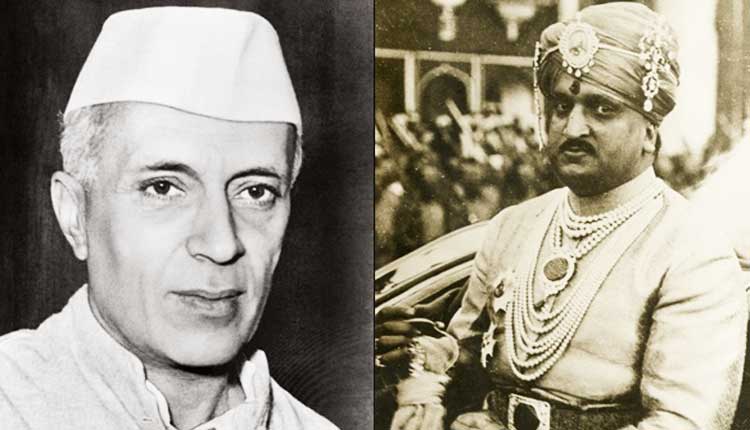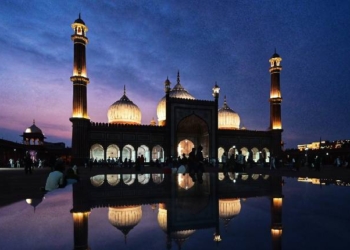New Delhi: The accession of Jammu & Kashmir to India on October 26, 1947, was a landmark event in the history of the Indian subcontinent.
On this day, Maharaja Hari Singh, then ruler of Jammu & Kashmir, formally signed the Instrument of Accession, thus integrating the Princely State into the newly formed Indian Dominion. This decision was a progressive and strategic step that to date, continues to shape both the internal and external dynamics of Jammu & Kashmir.
The geopolitical environment as an immediate aftermath of British decolonisation was characterised by uncertainty and conflict mostly provoked by a newly formed Pakistan. Following the Partition of India, on October 22, 1947, Jammu & Kashmir found itself surrounded by chaos and destruction in the wake of an illegal tribal invasion backed by Pakistan forces. Maharaja Hari Singh decided to accede to India in order to secure Indian assistance with the vision of a peaceful and prosperous future. This accession was not only a response to immediate security concerns but also a decisive political act that altered the course of the region’s future for the better.
The Maharaja’s decision to accede to India was a highly strategic and futuristic approach to support growth in Jammu and Kashmir. Faced with the pressures of an external invasion and the internal demand for stability, the Maharaja made a calculated choice in favour of India, seeking military and political support to preserve the integrity of his state. Contrary to claims of coercion or haste, the decision to accede was informed by a clear understanding of the consequences, reflecting a preference for the governance structures and democratic principles offered by India, in contrast to Pakistan’s military-backed aggression.
The Instrument of Accession signed by Maharaja Hari Singh remains legally valid and unassailable under international law. Enacted in accordance with the Government of India Act, 1935, and the Indian Independence Act, 1947, the accession granted India jurisdiction over Jammu & Kashmir’s defence, communications, and foreign relations, while maintaining the state’s internal autonomy.
The aftermath of the accession saw Pakistan engaging in sustained efforts to distort the United Nations resolutions concerning Jammu & Kashmir. Central to this narrative is the selective emphasis on the plebiscite clause, which suggests that the people of Jammu & Kashmir should have the right to determine their own future. However, this interpretation overlooks critical preconditions set by the UN, including the requirement for the withdrawal of Pakistani forces from territories they occupied during the conflict.
Two additional clauses of the UN resolutions emphasise the need for a ceasefire and the establishment of a line of control, which have also been misrepresented by Pakistan in its mischievous quest to challenge India’s claim. The UN Resolution 47, adopted in 1948, called for a ceasefire, urging both parties to withdraw their forces and facilitate a plebiscite, conditional upon the complete withdrawal of Pakistani troops. Furthermore, subsequent resolutions stressed the importance of demilitarisation as a precursor to any future plebiscite, conditions that remain unfulfilled.
Despite Pakistan’s continued efforts to undermine the legal framework of the accession, India took the matter to the United Nations, seeking international mediation to address the conflict. This decision marked a significant moment in the global discourse surrounding the Kashmir issue, placing the regional dispute within the context of international law and human rights.
Over time, the decision to accede to India has been vindicated by the socio-economic progress observed in Jammu & Kashmir. The region’s development trajectory, supported by substantial investments from the Indian government, has contrasted sharply with the economic challenges faced by Pakistan. Jammu & Kashmir’s development budget now exceeds the bailout packages secured by Pakistan from the International Monetary Fund (IMF), highlighting the region’s progress within India. This comparative analysis underscores the long-term benefits of the accession, as Jammu & Kashmir continues to experience significant improvements in infrastructure, education, and economic opportunities.
The accession of Jammu & Kashmir to India on October 26, 1947, stands as a pivotal event with enduring consequences. The Maharaja’s decision to join the Indian Union was legally and politically sound, rooted in the need for security and long-term stability. Pakistan’s continued misrepresentation of UN resolutions and its selective interpretation of historical events cannot diminish the legal and historical legitimacy of the accession. In retrospect, the development and progress of Jammu & Kashmir serve as a testament to the correctness of the decision, reinforcing the region’s integration into India.
(IANS)
















